How to get GMP certification?
How to get GMP certification?
How to get GMP certification? If you’ve been researching how to get GMP certified, you’ve probably come across the term quite a bit. But what exactly does it mean, and why is it so important? Let’s break it down together.
Defining GMP Certification
GMP stands for Good Manufacturing Practices, a set of guidelines designed to ensure that products are consistently produced and controlled according to quality standards. GMP certification verifies that a business complies with these practices, making it a globally recognized benchmark for safety and quality.
Why GMP matters:
- It focuses on preventing errors, contamination, and inconsistencies during production.
- It applies to a wide range of industries, including food, cosmetics, pharmaceuticals, and dietary supplements.
- It’s not just about compliance—it’s about building trust with customers and regulators.
Think of GMP certification as a guarantee that your products are safe, reliable, and high-quality.
Tips on How to get GMP certification?
How to get GMP certification? Embarking on the process of how to get GMP certified can feel like a big undertaking, but with the right strategies, you can navigate it smoothly. Whether you’re just getting started or fine-tuning your approach, these tips will help you stay organized and confident every step of the way.
1. Start with a Comprehensive Gap Analysis
A gap analysis is like a self-checkup for your business. It helps you identify areas that need improvement to meet GMP standards. Think of it as your first step toward success.
How to do it:
- Review your current processes, facilities, and documentation against GMP requirements.
- Highlight areas that don’t meet the standards or could use improvement.
- Prioritize fixes based on their impact on compliance and operations.
This initial step provides a clear roadmap for the rest of your journey.
2. Develop a Step-by-Step Plan
Once you’ve identified what needs to be done, create a detailed plan to address each area. Breaking down the process into manageable steps makes the journey less overwhelming.
What to include:
- A timeline for implementing changes, like facility upgrades or staff training.
- Clear assignments for team members responsible for specific tasks.
- A budget to allocate resources effectively.
A structured plan keeps your efforts focused and ensures you don’t miss anything important.
3. Train Your Team Early
Your employees play a vital role in maintaining GMP standards, so it’s crucial to get them involved from the beginning. Proper training ensures everyone understands their responsibilities.
Training tips:
- Hold workshops or hands-on sessions tailored to specific roles.
- Use visual aids, like flowcharts and videos, to make complex concepts easier to grasp.
- Reinforce learning with regular updates and refresher courses.
When your team feels prepared, they’re more confident and motivated to follow GMP practices.
4. Keep Documentation in Order
Documentation is the backbone of GMP compliance. Accurate and organized records demonstrate your commitment to quality and make audits much easier.
Best practices for documentation:
- Use templates for standard operating procedures (SOPs) to ensure consistency.
- Regularly review and update records to reflect any changes in processes.
- Store documents digitally for easy access and secure backups.
Organized documentation saves time and stress, especially during audits.
5. Conduct Mock Audits
A mock audit is like a dress rehearsal for the real thing. It helps you identify weak spots and gives your team a chance to practice.
How to run a mock audit:
- Use GMP audit checklists to cover all compliance areas.
- Simulate scenarios auditors might focus on, like facility inspections or employee interviews.
- Address any findings immediately and document corrective actions.
Mock audits build confidence and ensure you’re ready for the official assessment.
6. Choose the Right Certification Body
Not all certification bodies are the same, so take your time to find one that aligns with your business needs and industry.
What to look for:
- Experience in your specific industry.
- Accreditation and recognition by regulatory authorities.
- Transparent pricing and clear communication about the audit process.
Partnering with the right certification body makes a big difference in your experience.
7. Embrace Continuous Improvement
GMP certification isn’t just a one-time achievement—it’s an ongoing commitment. Continuously improving your processes ensures you stay compliant and competitive.
Ways to improve:
- Schedule regular internal audits to catch issues early.
- Seek feedback from employees about what’s working and what isn’t.
- Stay informed about updates to GMP standards and industry trends.
How to get GMP certification? A culture of continuous improvement helps your business thrive in the long run.
8. Celebrate Milestones Along the Way
The journey to GMP certification is a significant effort, so take time to celebrate your progress. Acknowledging milestones keeps your team motivated and focused.
Ideas for celebrating:
- Host a team lunch or event when major goals are achieved.
- Share progress updates with your employees and stakeholders.
- Highlight successes in internal newsletters or on social media.
Celebrations remind everyone that their hard work is appreciated and meaningful.
Why These Tips Matter
How to get GMP certification? Getting GMP certified is a journey, but it doesn’t have to be stressful. By following these tips, you’ll set yourself up for success and make the process much more manageable. Remember, every step you take brings you closer to the rewards of GMP certification, like customer trust, operational efficiency, and market opportunities.
Take it one day at a time, stay focused, and keep your eye on the goal—you’ve got this!
Conclusion How to get GMP certification?
How to get GMP certification? Getting GMP certified might seem like a daunting task at first, but with the right approach, it becomes a manageable and rewarding journey. By breaking it down into clear steps—like conducting a gap analysis, training your team, and choosing the right certification body—you’ll gain confidence in navigating how to get GMP certified.
Achieving GMP certification isn’t just about ticking boxes. How to get GMP certification? It’s about building trust with your customers, ensuring the quality and safety of your products, and positioning your business for long-term success. From reducing risks to opening new market opportunities, the benefits of GMP certification make every effort worthwhile.
How to get GMP certification? this is a journey, not a sprint. Take it step by step, celebrate your progress, and stay committed to continuous improvement. By embedding GMP principles into your operations, you’re not only meeting industry standards—you’re raising the bar for your business and building a legacy of excellence.
Now is the perfect time to take the first step toward GMP certification. How to get GMP certification? With dedication and the tips we’ve covered, you’ve got everything you need to succeed. Go for it—you’ve got this!
Let’s make ISO less about stress and more about success! 🙏
make ISO standards less intimidating and more approachable for everyone.
Whether it’s ISO 9001, ISO 22000, or the cosmetics-focused ISO 22716,
I’ve spent my career turning complex jargon into clear, actionable steps
that businesses can actually use. I’m not here to call myself an expert—I prefer “enthusiast” because I truly love what I do.
There’s something incredibly rewarding about helping people navigate food safety and quality management systems
in a way that feels simple, practical, and even enjoyable.
When I’m not writing about standards, you’ll probably find me playing Piano 🎹, connecting with people, or diving into my next big project💫.
Looking for More Resources on ISO 22716?
If you found this article helpful, explore our premium resources designed to help you achieve ISO 22716 certification efficiently:
- 📦 Complete Documentation Package for ISO/IEC 22716 2017: Get all the essential templates and documents you need for fast, easy implementation.
- 🎓 Online Course on ISO/IEC 22716 2017 : Enroll in our comprehensive training to master the key concepts and practical steps toward certification.
- 📋 ISO/IEC 22716 2017 Checklist: Download our detailed checklist to ensure you’ve covered every step of the process.
These resources are tailored to meet your needs and ensure a smooth certification journey. Explore them today and get one step closer to success!

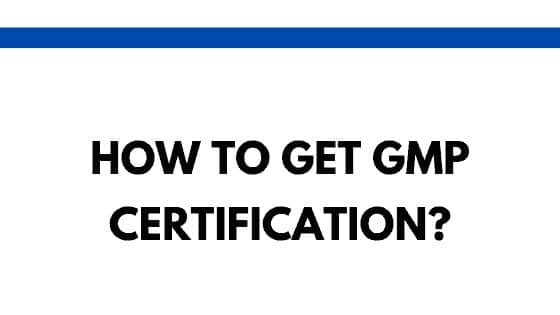






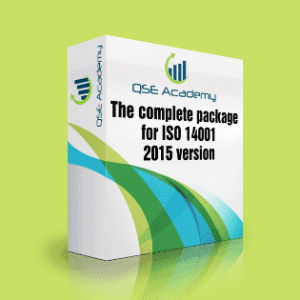
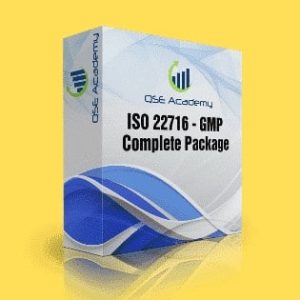

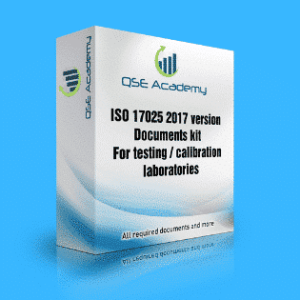




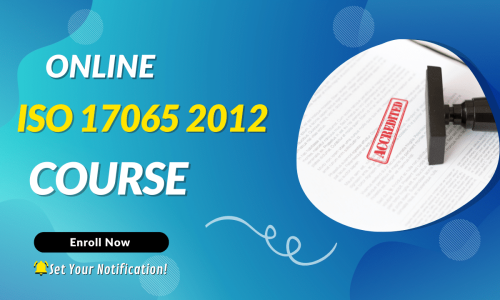
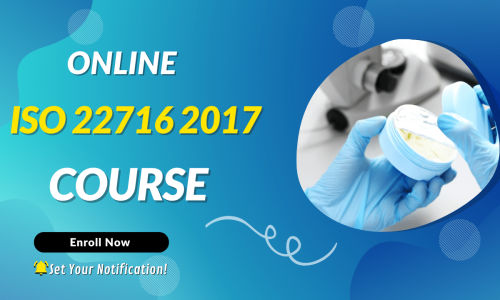




Comment (1)
Lakshman Balajepalli
We are an Academic CMO with GMP suites and GMP quality management systems. We perform contract manufacturing of clinical trial human cell therapy products for phase 1 and phase 2 studies in humans
We wish to know if we can obtain cGMP certification